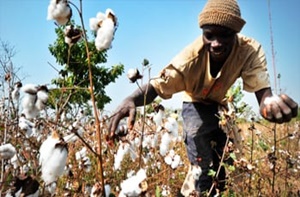Farmers' perceptions of land degradation in cotton agrosystems in western Burkina Faso
Abstract
With a view to a transition towards sustainable agrosystems, this study analyzes farmers' perceptions of land degradation, through surveys over 152 cotton farms in western Burkina Faso. According to results on farmers' perceptions, land degradation is more based on effect indicators than on soil surface condition and response indicators. Based on a qualitative rating scale (degraded, medium, rich), non-natives claim to have degraded (42.9%) to moderately degraded (57.1%) lands. According to the natives, the lands are degraded (25.5%), moderately degraded (60%) and rich (14.5%). Beyond the social groups, famers have a convergent understanding about the factors of land degradation, mainly with regard to mechanized tillage and the deficit of organic fertilizer inputs. In addition, cotton farming is mostly associated with the availability of fertile lands, but it is also implicated in land degradation due to the cropping practices implemented. The farmers' practices that were observed suggest that the sustainability of cotton agrosystems can be strengthened through the optimization of organic fertilization and the use of minimum tillage practices.
Keywords: Perception, Land degradation, farmers’ indicators, Burkina Faso
Full-text of the article is available for this locale: Français (Canada).

Published
How to Cite
Issue
Section
License
© Revue Marocaine des Sciences Agronomiques et Vétérinaires
